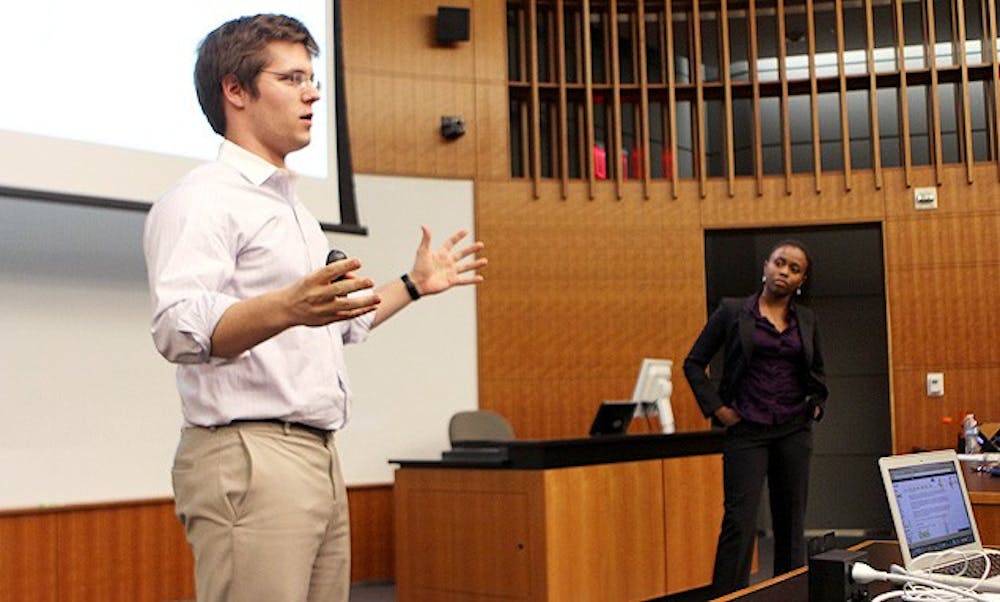In the coming weeks, Duke Student Government will be exploring a strategy to stretch student dollars a little further and make better use of surplus funding.
President Pete Schork, a senior, proposed changes to the current surplus account bylaw by suggesting the creation of a surplus account trustee board at the Senate meeting Wednesday. The surplus account is funded annually by unallocated money cleared from the Student Organization Finance Committee’s surplus programming fund and the unspent money in DSG’s general account, at the end of each academic year. This structure was implemented in the 2010-2011 academic year, after DSG decided to let surplus group funding roll over from year to year in groups’ individual accounts, as funded by SOFC.
Currently, groups present requests for programming or other funding to the Senate during meetings, giving DSG members little warning and time to deliberate the best use of the surplus account, Schork said. The change to the bylaw would implement a smaller committee—the surplus account trustee board—comprised of the DSG president, executive vice president, SOFC chair, DSG treasurer and four appointed senators to oversee the surplus account, process any expenditure requests and make recommendations.
“The goal is to optimize students’ bang for their buck, and the Senate is not best equipped to think about these allocations during the allotted meeting time,” Schork said. “[The committee] empowers the Senate with more information.”
The board would discuss how to best spend the surplus money, Schork said. It would also process requests from student groups and organizations with due diligence, he added.
“We have extra money every year in surplus and put that money to good use, but we have not been spending it enough,” he said.
The Senate will vote on the bylaw next week.
In other business:
DSG also had a first reading of proposed changes to the selective living group bylaw, allowing SLGs—including fraternities and sororities—to use gender as membership criteria in line with their national bylaws. The bylaw currently states that no DSG-recognized group can discriminate based on gender, but this change will solve the discrepancy.
The Senate also recognized the student group Students for a Democratic Society in a 31-12 vote after debate over the organization’s name.
“Yes, the word democracy is continually being defined, but it’s a misleading name because [the group] says that a democratic society is one against American imperialism,” said sophomore Patrick Oathout, senator for athletics, services and the environment.
In the wake of several Duke housekeepers claiming mistreatment by their supervisor in Edens Quadrangle, members of Duke Student Action with Workers—sophomore Haley Millner, senior Kinnari Bhojani and junior Tong Xiang—presented the issue at the meeting. The Senate approved a resolution urging institutional equity for Duke faculty and staff to support DSAW.
Freshman Derek Rhodes, senator for Durham and regional affairs, updated the Senate on the Durham Discount Program, requesting $507 to cover the remaining costs of advertising. The program’s marketing will include bus and print advertisements, flyers and business cards to raise student awareness about local restaurants that give Duke students discounts.
DSG approved $2,067.50 for the Jamaican prime minister’s visit to Duke, hosted by the Students of the Caribbean Association. The Senate also approved a $2,185 budget for the Freeman Center for Jewish Life Bar Mitzvah hosted by the Jewish Student Union to celebrate the building’s 13th anniversary and a $2,500 budget for the Mp3 Experiment event sponsored by Engineering Student Government.
Get The Chronicle straight to your inbox
Signup for our weekly newsletter. Cancel at any time.

